From inadequate to good – how head teacher led transformation of Hastings primary school
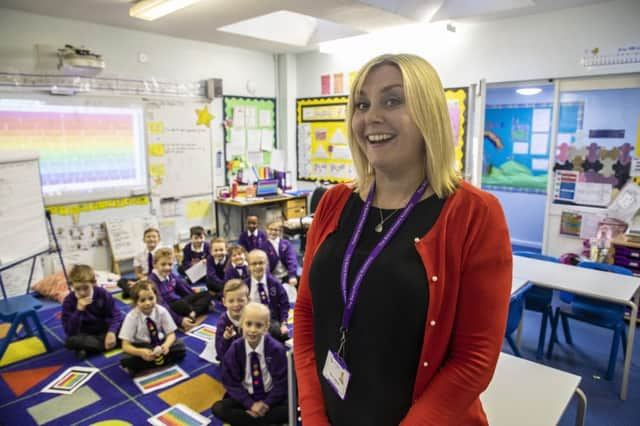

When she first started, the school was in the bottom 10 per cent for results nationally, and received an Ofsted report status of ‘inadequate with serious weaknesses’.
Under her guidance, the school has seen a steady and significant improvement in SATs results, as well as a recent Ofsted report of ‘good’ – only the second time the school has achieved that status in 23 years.
Advertisement
Hide AdAdvertisement
Hide AdMs Welch said: “I’m Hastings born and bred and had a really positive time at school first at St Mary’s Star of the Sea and then Helenswood.
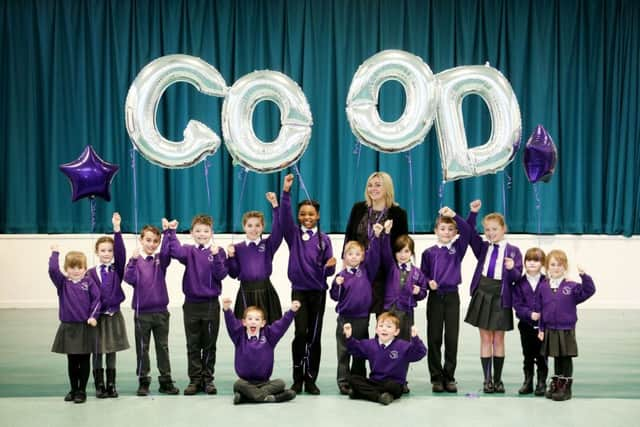

“I actually kind of fell into teaching. Initially I was dead set on becoming an RAF pilot, but my asthma held me back, so I decided to study psychology at university with the intention of working with young offenders. Then I worked as a teaching assistant at Robsack Wood and it changed everything.
“I realised that not everyone had such a positive experience of school as I did, and that teachers can really change a child’s life for the better, which is so powerful.
“As soon as I finished uni in Nottingham I came back to Hastings to give something back to the local community. I rejoined Robsack Wood, initially as a teaching assistant, before then completing my training as a teacher, where I was lucky to rise quite quickly to deputy head, and then joined The Baird three years ago as head.”
RELATED STORIES:
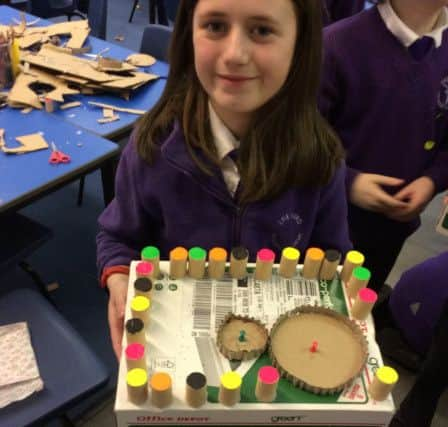

Advertisement
Hide AdAdvertisement
Hide AdWhen asked what The Baird was like when she first arrived, she said: “It was a very different school to now and had been through a very tricky time.
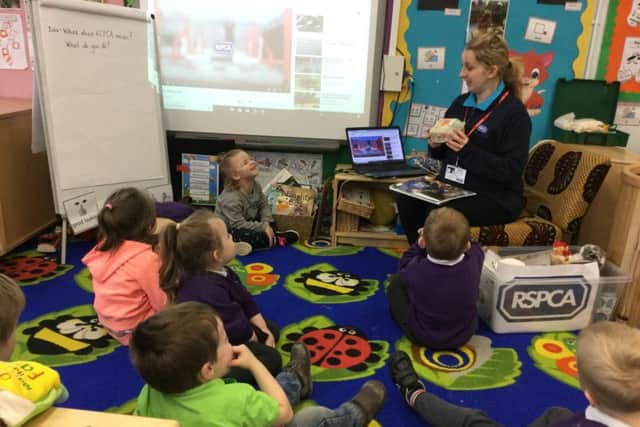

Advertisement
Hide AdAdvertisement
Hide Ad“The school had challenges with leadership, poor behaviour and attendance. The curriculum wasn’t fit for purpose which had huge knock-on effects to children’s motivation and was a key reason for very low results.
“The buildings themselves were in disrepair, with an uninspiring environment for the pupils. Communication with parents was admittedly very poor with a strong disconnect between parents and staff, which fuelled a bad reputation around Hastings.”
In a report published in February of this year, the school was praised by Ofsted for making rapid improvements, and was deemed to be ‘good’ in all areas.
Speaking about the changes that have taken place since she’s been at The Baird, Ms Welch said: “I started alongside 11 new teachers, so it really was a big wave of change and everyone was excited and motivated to get things going, get behind the children and make positive changes to give them the best possible opportunity.
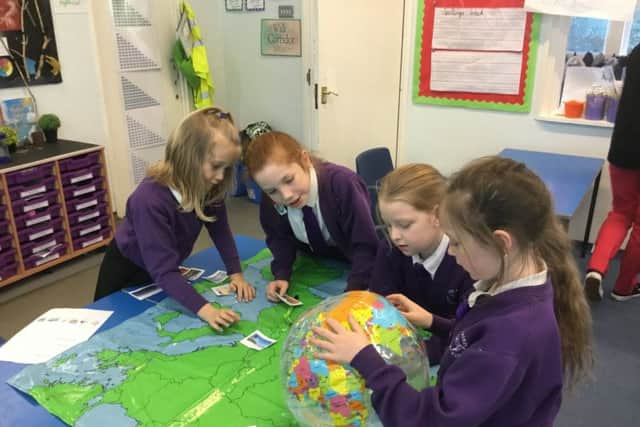

Advertisement
Hide AdAdvertisement
Hide Ad“We were very lucky to have a brilliant executive principal, John Smith, in place, as well as a hugely supportive trust, the University of Brighton Academies Trust. The trust invested a huge amount of money into the building, which has transformed the school environment – it really is a beautiful bright and inspiring space with lots of year groups work on display. It gives the children, parents and staff a sense of pride.
“The priority for me was to change the curriculum – the children lacked experience of quality texts and were being taught in a way that didn’t engage them.
“We very quickly transformed this to have a focus on an immersive, exciting and hands on approach to learning. We have outdoor learning with opportunities to engage with our natural environment; year one recently had an alien spaceship land in the woods for one of their classes, and year three had ‘The Iron Man’ trash their classroom which became a crime scene for them to investigate as part of a literacy lesson. These things make the school day fun and exciting and learning is undertaken by stealth.
“We immediately set very high expectations, particularly around behaviour, with a new policy which was rigorously enforced to give consistent, fair and structured boundaries, while amping up positive praise and reinforcement with lots of rewards. We want the children to know we expect a lot of them, believe in them and want to make them into resilient learners, and it’s had a great effect as exclusions have dropped dramatically.
Advertisement
Hide AdAdvertisement
Hide Ad“We also created a senior leadership team who were very visible and had a constant presence in the corridors, classrooms and playground. For example, every morning and afternoon all of the staff are in the playground to meet and greet children and their parents, which has really improved communication between staff and parents.
“We now host a lot of events and open days which are really well attended and bring parents and carers into the classroom to engage with their children’s learning, and we communicate very actively via social media. We all need to work together to move in the right direction so this has been a very important aspect to the improvements.”
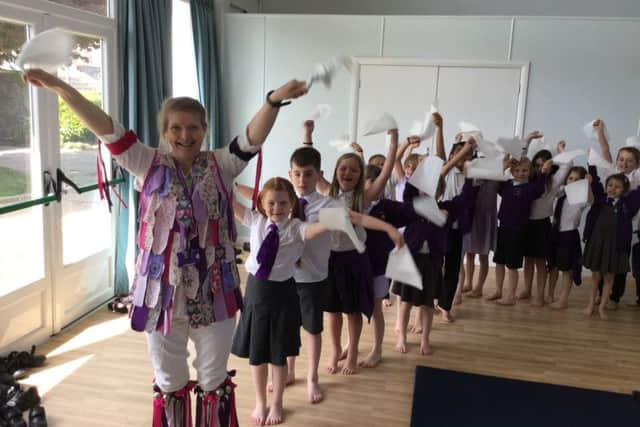

When asked how she felt when she received the Ofsted report, the head teacher said: “It was a really weird feeling. Everything in my entire life had been centred around getting The Baird up to ‘good’ with Ofsted – every day we were constantly looking at how we could improve different areas. When the report came through, of course we celebrated because it signified progress as a result of incredibly hard work by everyone involved in the school, but to be completely honest our minds were immediately completely focused on continuing to improve.
“Last year, although our results have significantly improved 50 per cent of our year sixes went to secondary school without achieving the expected standard in terms of results so we’ve got a huge way to go. Our ultimate goal is for every child to leave here with a love of learning, and for as many as possible to be an incredible reader – these two skills are, in my opinion, the most important qualities to take into secondary school, and to provide children with hopes, dreams and aspirations.”
Advertisement
Hide AdAdvertisement
Hide AdSo what makes a good teacher? Ms Welch believes it is having a ‘passion and a desire to make a difference to children’s lives’.
She added: “You have to care wholeheartedly about the children you work with because it’s not an easy job but it’s incredibly rewarding if you have the enthusiasm to spark a relationship with the children. You can teach someone to teach, but you can’t teach people to have good relationships with children.”
Ms Welch also spoke about her role as head teacher, saying: “I think it’s important to be very visible and part of the everyday environment and my office door is always open so the children are constantly coming in to talk to me. I still teach, I’m out on the playground every day because I think that’s what’s important to the parents, children and staff.
“If you lose touch of what’s going on in the classrooms then it’s difficult to understand the school.
Advertisement
Hide AdAdvertisement
Hide Ad“As a head it’s important to have a really clear vision of where you want the school to be, and demonstrate what your passion is for the children, staff and parents to achieve. You have to be able to grow and nurture a team – it goes without saying that the staff need to share your vision and be as enthusiastic about delivering it as you, so you need to be passionate about getting the best out of people.
“For me, inclusion sits really highly in that, and I want our school to be a centre of excellence for inclusion and learning – the Boxall Quality Mark was the start for that. And really good practice for SEND is excellent practice for children who aren’t. It’s about offering amazing opportunities regardless of contextual factors.”
When asked how she inspires children through education, Ms Welch said: “My next door neighbour used to work at Biggin Hill airfield, so we used to go to the airshows and he let us sit in the fire engine that went alongside the planes, which is what inspired my desire to become an RAF pilot.
“Looking back, that experience, among many others, gave me motivation and self belief - even though I couldn’t become a pilot, I applied that ambition to teaching, which demonstrates how important career encounters and enrichment activities are for our children.
Advertisement
Hide AdAdvertisement
Hide Ad“We are always mindful about showing children that they can aspire to do whatever they want – every month we have an assembly which focuses on a different job, which could be anything from being an optician, working for the RSPCA or even volcanology. But we discuss these careers in a very tangible way which maps out the things that they would need to do follow that path.
“I think its about offering different and unique opportunities – I’d actually love to get an old banger here for our children to do mechanics on – I think it would be brilliant. Some children who find it difficult to engage with academic learning often really respond well to hands on things and it can be a really exciting way of learning.”
Ms Welch also had a message to parents on how they can help their children thrive. She said: “Of course, all parents want the best for their children, but some people didn’t have a positive experience of education themselves which makes it difficult for them to be enthusiastic about it to their children.
“I can’t stress enough how much of a difference it makes to have a parent or carer who values education and passes that on to their children, as so many other things follow from this and it has a huge impact on how your children view school, and their self belief that they can enjoy learning and achieve what they set out to do.”